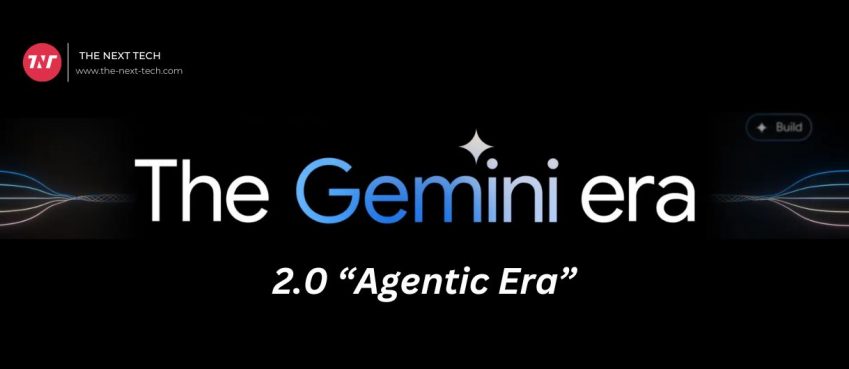
The rapid development of artificial intelligence (AI), is one technology trend that has captured everyone’s attention over the past few years. Artificial intelligence (AI) has a disruptive nature that opens up a wide range of applications. AI promises many new possibilities, but customer experience (CX), seems to be the most promising.
Today’s businesses are acutely aware of the importance of a great customer experience to be successful. They are now looking to incorporate AI to deliver an intelligent, convenient, and informed CX for all points of the customer journey.
According to an IDC prediction, 40% of digital transformation projects will be supported by cognitive computing or AI by 2019. Gartner’s study states that by 2020, 85% of customer interaction will be automated.
AI’s great potential is because it can analyze and process large amounts of data, including human behavior and emotions. This helps create meaningful CX.
Already, we are witnessing the impact AI is having on various industries and fields. Examples of how AI can disrupt our modern lives include Tesla’s self-driving cars, Google’s Siri personal digital assistant (Google), and Amazon Alexa/Echo.
Businesses need to have three basic capabilities to successfully incorporate AI into customer experience: data unification, real-time insights, and business interaction.
Also read: iPhone 14 Pro Max Is Apple’s New iPhone To Be Launched In September (Know The Release Date, Specification, Rumour & More)
Here is how AI can transform the customer experience for better
Improved Customer Experience with chatbots and AI-powered virtual assistants
Automating customer service is the best way to improve customer experience. It should be easy, quick, and painless. Chatbots are AI-based virtual conversations that can be used to engage customers. They can be programmed to mimic human interactions and give personalized immediate responses.
This will eliminate any unnecessary delays or errors in customer service, particularly when dealing with customer complaints. Automating customer queries will allow companies to cut down on training time and increase revenue by reducing the number of service reps who are required to respond to repetitive queries.
Businesses can also use AI-powered virtual assistants to distribute content in a variety of channels to better reach the right audience.
Facebook’s Messenger Bot, for example, helps shoppers find the right product by engaging them in simple conversations. AI can be used to facilitate client chats, but also to help with lead generation marketing to improve profitability.
It can help you identify potential sales leads by ensuring that your customers are targeted on the right platforms.
Predictive personalization
Predictive personalization refers to the ability and effort to predict users’ actions based on previous behavior. AI uses predictive personalization today to enhance CX by seamlessly integrating it into consumers’ daily lives. Customers will feel like every brand or product experience is tailored to them by AI-powered personalization.
Online shopping is where predictive personalization can be especially useful. Data collected through online sessions and consumer behavior are analyzed. This includes time spent on pages, pages, products, forms, purchases, searches made, and the time spent filling out forms.
Businesses will be able to analyze and process this data to determine individual shoppers’ needs and suggest the best items to them. AI-infused processes will improve customer service interactions across channels by streamlining them.
Also read: DDR4 vs DDR5: Tech Differences, Latency Details, Benefits & More (A Complete Guide)
AI-enabled customer insights
AI can provide actionable insight for companies by feeding intelligence into CRM, marketing automation, and other key operational tools. They can use proven insights to increase customer engagement and empower employees through the aid of informed decisions.
Companies can use tools such as text analytics, facial recognition software, and machine learning to understand what customers see and identify the right message, and communicate it in real-time. AI-enabled customer path analytics can help companies sort through much more complicated data and uncover more business opportunities.
Voice, visual, and text engagements
Companies can use visual engagement, voice, and text sentiment analysis to gauge emotions and sentiments in a variety of communication channels. AI-powered visual engagement technology analyses facial expressions in video chat and face-to-face conversations.
Augmented processing uses voice biometrics, nuances from vocal cords, and modulations in telephone calls to understand emotions.
These AI-based algorithms allow companies to determine the best route for communications and find satisfaction. This will allow them to deliver positive emotions that increase lifetime value and encourage repeat business.
Also read: 7 Best Woocommerce Plugins to boost your Store you must know
The dramatic shift in decision making
AI’s success will be measured by more tangible measures such as return on investment, new markets, cures for diseases, and other practical metrics. All of these achievements will be possible through a paradigm shift in decision-making.
Machine learning, big data, and AI have opened the door to a new way of measuring decision-making. Already, it is becoming clear that intuition and gut feelings cannot make decisions. Decisions should be supported by data.
AI empowers businesses to make informed business decisions, regardless of whether they are product reviews or customer service processes. The decision-making strategies of the financial, automotive, and health sectors are changing dramatically.
PwC, an internationally renowned tax, and audit consulting firm, recently compiled massive amounts of data from the US Census Bureau and US financial data to create a large-scale financial decision model for 320 million US consumers.
On the other hand, AI has been used in many areas of the automotive industry, including vehicle design, marketing, and sales decision-making support. AI simulation and modeling provide an excellent understanding of consumer behavior and are crucial for making the right marketing decisions in the long and short term.
Also read: Top 25 Digital Marketing Blogs To Follow In 2024
Final thoughts
Artificial Intelligence will be around as long as it is possible to realize its potential. AI-driven customer journey analytics is a fundamental requirement for businesses to provide high-impact customer experiences quickly and effectively.
Top 10 News
-
01
10 Exciting iPhone 16 Features You Can Try Right Now
Tuesday November 19, 2024
-
02
10 Best Anatomy Apps For Physiologist Beginners
Tuesday November 12, 2024
-
03
Top 10 Websites And Apps Like Thumbtack
Tuesday November 5, 2024
-
04
Top 10 Sites Like Omegle That Offer Random Video Chat
Monday October 21, 2024
-
05
Entrepreneurial Ideas To Make 5K In A Month (10 Realistic Wa...
Monday October 7, 2024
-
06
[10 Best] Cash Advance Apps Like Moneylion And Dave (No Cred...
Friday September 20, 2024
-
07
Top 10 Richest Person In The World
Tuesday August 27, 2024
-
08
Top 10 Unicorn Startups In The World (2024-25)
Monday August 26, 2024
-
09
Top 10 IT Companies In The World By Market Cap
Thursday August 22, 2024
-
10
[10 New] Best OnionPlay Alternatives To Stream TV Shows And ...
Tuesday June 11, 2024







